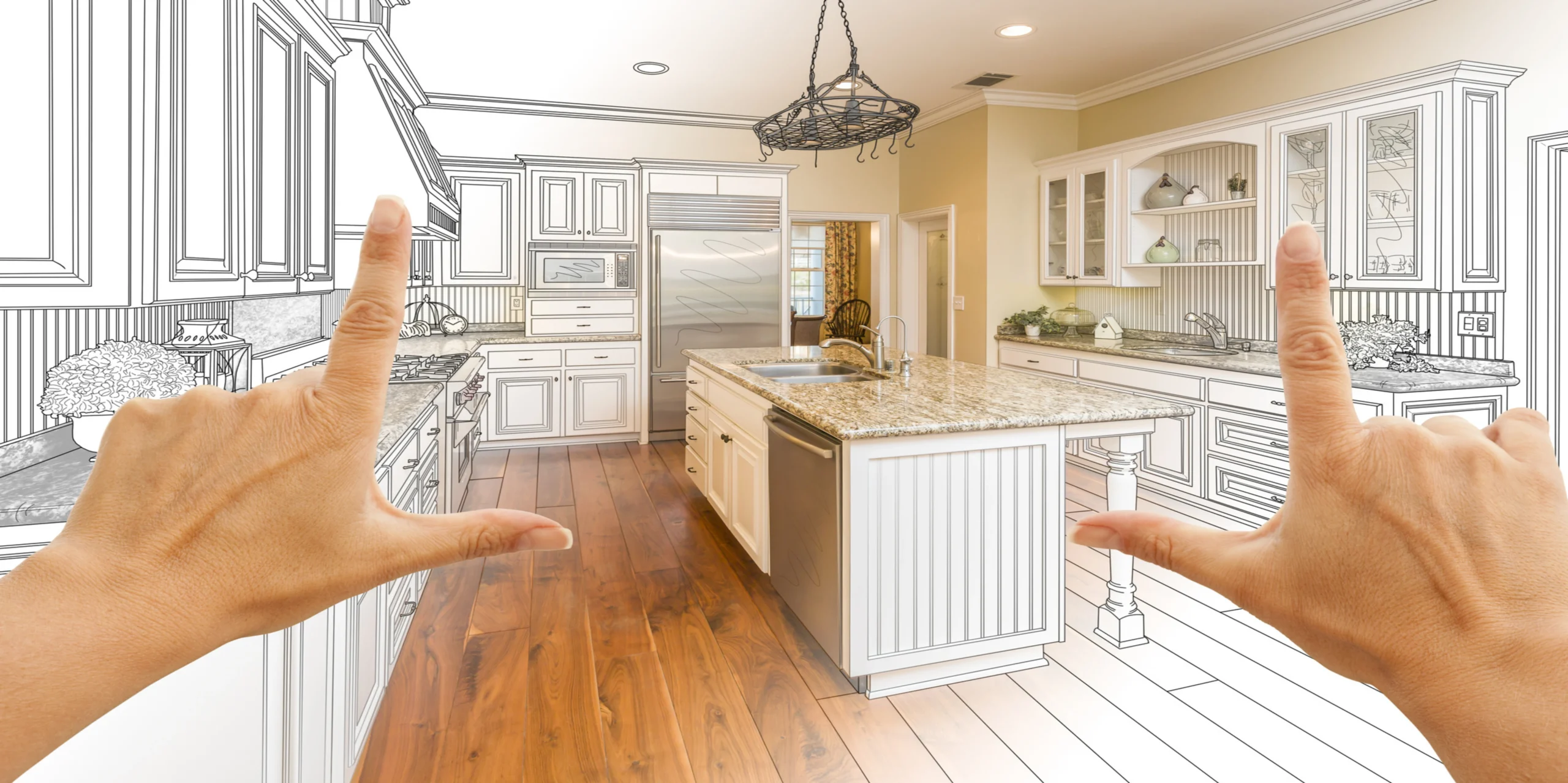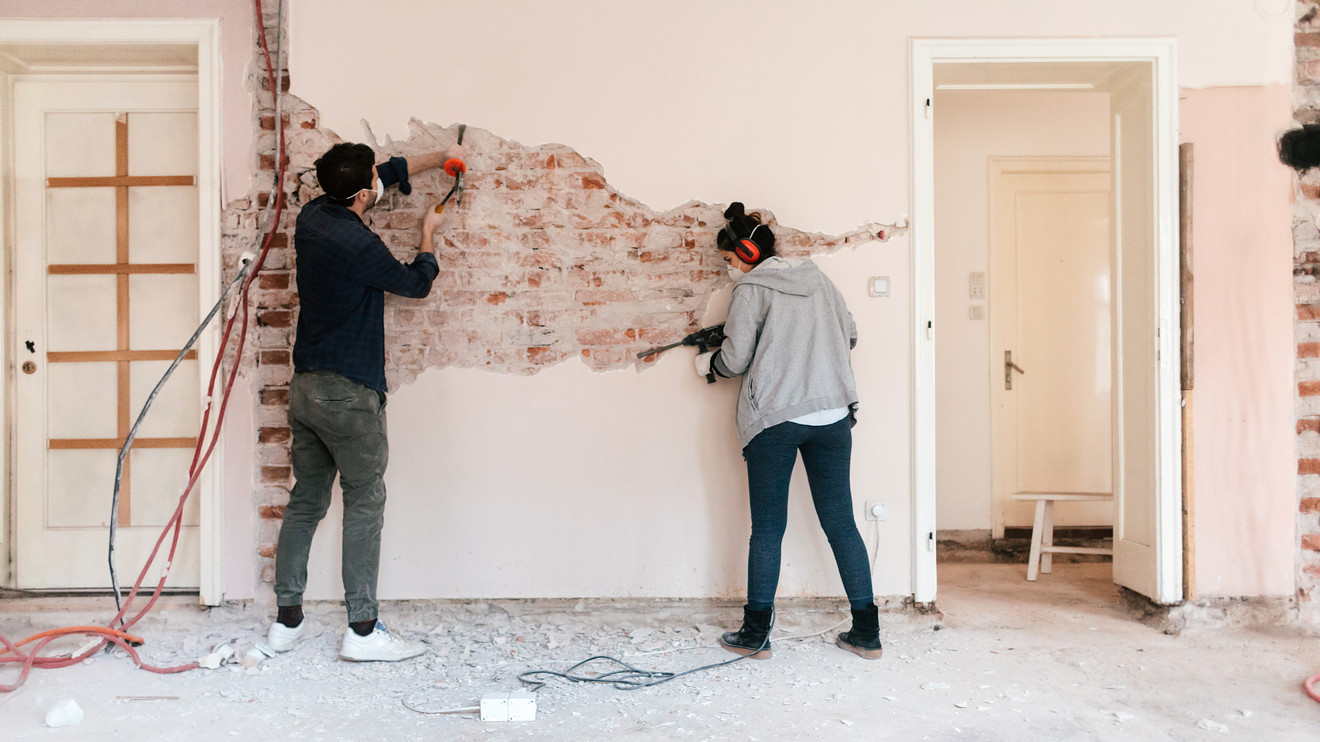Remodeling your home can be an exciting journey, whether you’re looking to update a room, renovate a space, or tackle a major overhaul. But when it comes to deciding whether to go the DIY route or hire a professional, it can be tough to choose. To help you make the best decision, we’ve put together a guide on when it makes sense to tackle a remodeling project yourself and when it’s wiser to call in the experts.
DIY Remodeling: When It Makes Sense
1. Small Projects
Small projects like painting a room, installing a backsplash, or updating cabinet hardware are often ideal for DIY enthusiasts. These tasks are straightforward and don’t typically require specialized skills or tools, making them manageable for most homeowners.
2. Budget Constraints
If you’re working with a tight budget, DIY can be a great way to save on labor costs. Simple updates and repairs, such as changing out fixtures or re-grouting tiles, can be completed with a bit of research and elbow grease, allowing you to allocate funds elsewhere.
3. Skill and Experience
Do you have a knack for home improvement and a basic toolkit? If you have experience with similar projects and feel confident in your skills, tackling a DIY project might be a viable option. Your familiarity with tools and techniques can be a big advantage.
4. Time and Patience
DIY projects can be time-consuming. If you’re not under a tight deadline and have the patience to see a project through, taking it on yourself can be a rewarding experience. Just be sure to set realistic expectations for how long the project will take.
5. Personal Satisfaction
There’s a unique satisfaction that comes with completing a project yourself. If you enjoy the hands-on aspect of home improvement and take pride in your work, DIY projects can be a fulfilling way to enhance your space.
When to Hire a Professional
1. Complex Projects
For major renovations like kitchen remodels, structural changes, or intricate electrical and plumbing work, hiring a professional is often the best choice. These projects require specialized knowledge, skills, and tools that professionals bring to the table.
2. Safety Concerns
Safety should always be a priority. If a project involves hazardous materials, heavy machinery, or complex installations, it’s safer to leave it to professionals who are trained to handle these risks effectively.
3. High-Quality Finishes
If you’re aiming for a high-end finish, such as custom cabinetry, detailed tile work, or premium installations, professionals can deliver the precision and craftsmanship required. They have the experience and tools needed to achieve flawless results.
4. Time Constraints
When time is of the essence, professionals can complete projects more quickly and efficiently. If you’re facing a tight deadline or simply don’t have the time to devote to a project, hiring experts can help you stay on schedule.
5. Value and ROI
Major renovations often impact your home’s market value. Professionals can ensure the work is done to code and meets industry standards, which can enhance the value of your home and provide a better return on investment.
6. Permits and Regulations
Some projects require building permits or must adhere to local codes. Professionals are well-versed in navigating these regulations and can handle the necessary paperwork and inspections, ensuring compliance and avoiding potential legal issues.
Making the Decision
1. Assess Your Skills
Take an honest inventory of your skills and experience. If you’re unsure about your ability to complete a project safely and effectively, it might be wise to consult with or hire a professional.
2. Evaluate the Scope
Consider the complexity and scale of the project. For extensive or intricate tasks, professional expertise might be necessary to achieve the best results.
3. Consider the Budget
Weigh the costs of hiring a professional against the potential costs of DIY mistakes. Sometimes, investing in expertise can be more cost-effective in the long run, especially if it prevents costly errors.
4. Research and Plan
For DIY projects, thorough planning and research are crucial. Make sure you have a clear plan, the right tools, and the necessary materials before you start.
5. Consult Professionals
If you’re uncertain, consulting with professionals can provide valuable insights and help you determine whether hiring someone is the best choice for your project.
Deciding between DIY and professional remodeling ultimately depends on the nature of the project, your skills, and your preferences. By carefully evaluating these factors, you can make an informed decision that best suits your needs and ensures a successful remodeling experience.




